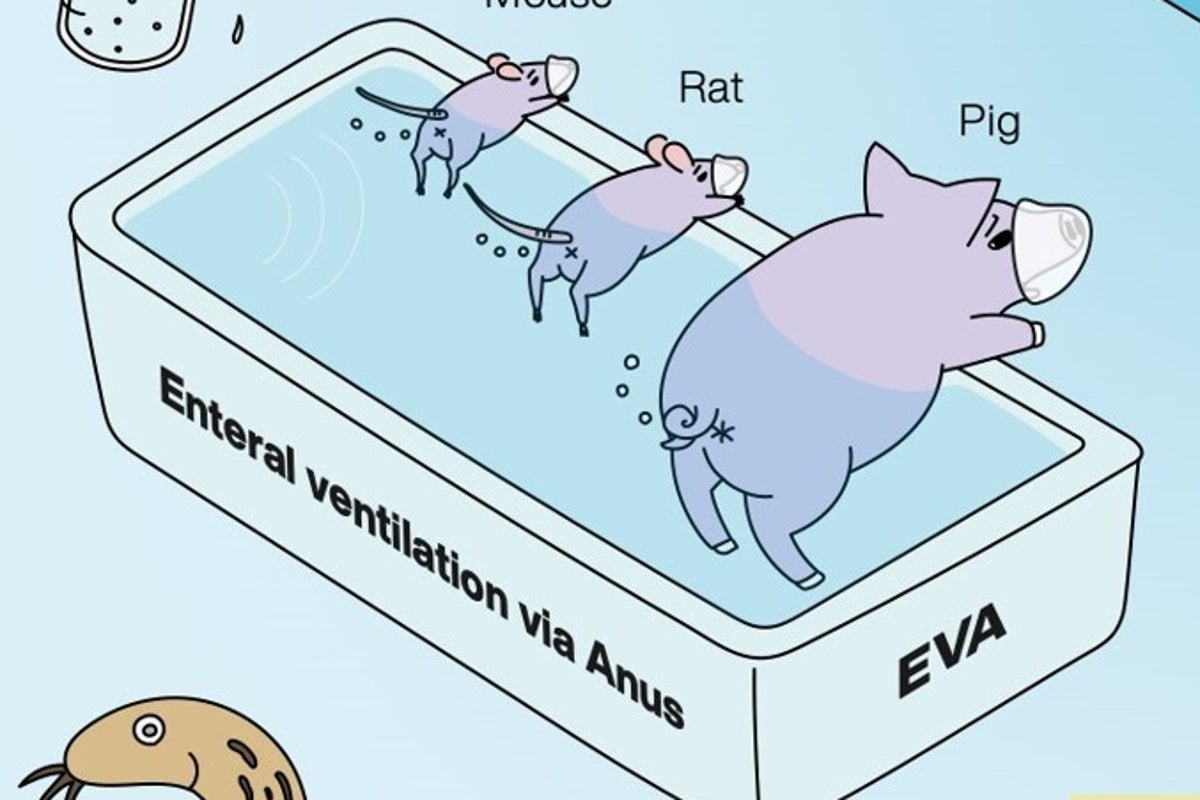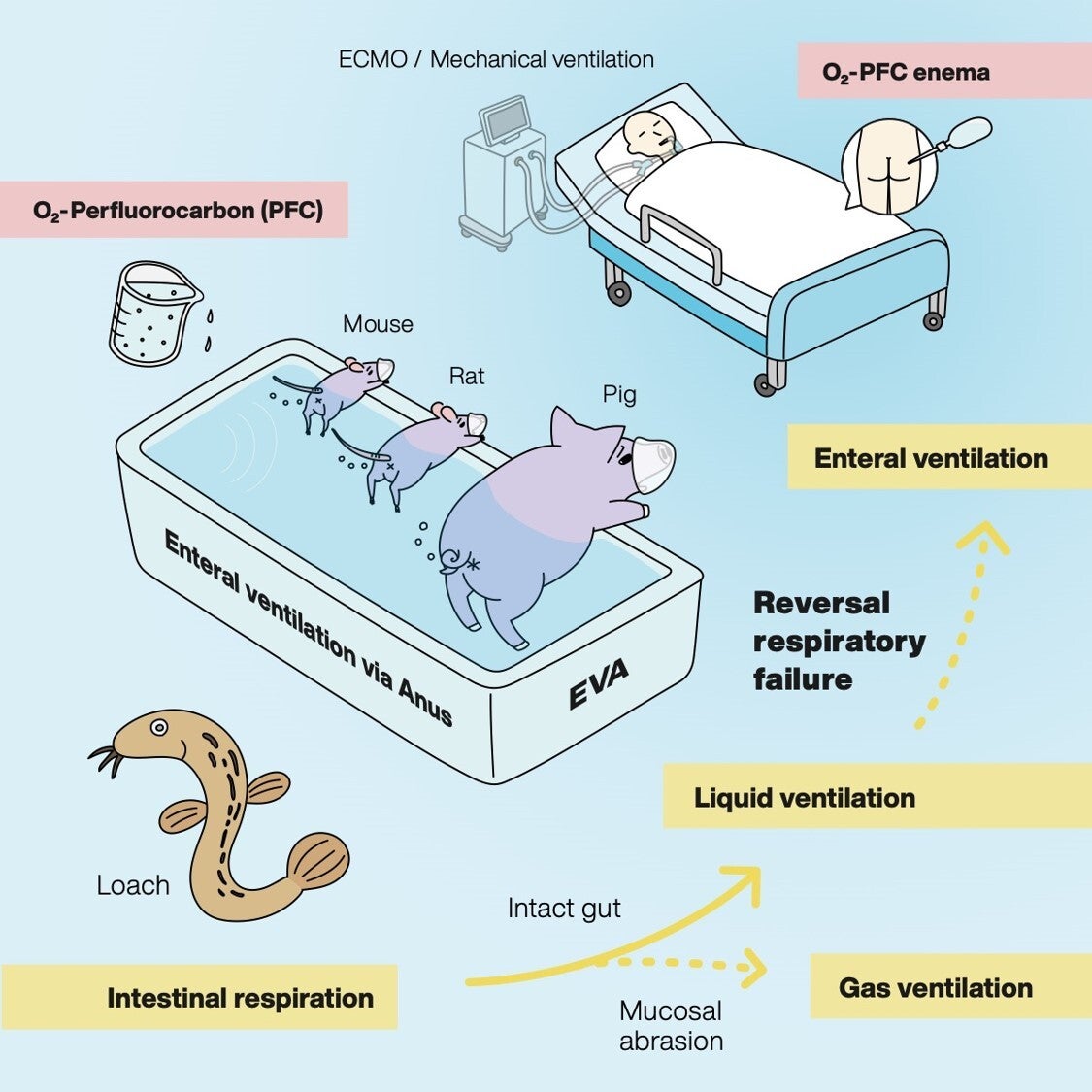
Ig Nobel-winning ‘butt breathing’ technique may actually help people with lung problems, scientists say
A seemingly outlandish method to deliver oxygen rectally – one of the winners of the 2024 “Ig Nobel” satirical science prize – may one day actually help lung disease patients, after achieving a key step in clinical trials.
The technique was first demonstrated in 2021 by Japanese researchers, who showed in experimental pig models that oxygen could be delivered to the body via the rectum in gas form.
An enema-like process delivers super-oxygenated liquid to the large intestine where the life-supporting gas is absorbed into the bloodstream.
While this method of rescuing people with blocked airways led the research team to win a parody award, it might not be a joke after all.
A study published in the journal Med reports encouraging data from the first human clinical trial to evaluate the potential benefits of this “enteral ventilation” technique.
“This is the first human data, and the results are limited solely to demonstrating the safety of the procedure and not its effectiveness,” Takanori Takebe, an author of the study from the University of Osaka, said. “Now that we’ve established tolerance, the next step will be to evaluate how effective the process is for delivering oxygen to the bloodstream.”

If the low-tech experimental technique were to prove successful in ongoing human trials, it could allow doctors to rescue people with airways blocked by injury or inflammation or with lung function severely limited by infectious diseases, the researchers said.
The Japanese scientists had got inspiration for the technique from observing the loach, a bottom-feeding fish known to swallow air from the surface and absorb oxygen through its gut, supplementing intake through the gills to survive in low-oxygen conditions.
They had also been inspired by the invention of the chemical perfluorocarbon liquid, or Oxycyte, which was developed as a potential form of artificial blood.
The latest study assessed data from 27 healthy men in Japan who were asked to hold varying amounts of the perfluorocarbon liquid – without it being oxygenated – for 60 minutes.
“This study evaluated the safety of this method in humans for the first time, using a special liquid called perfluorodecalin with exceptional oxygen-carrying ability,” the study authors said.
At least 20 of them held the liquid for the entire hour, including amounts up to 1,500 ml.
At the largest volumes, though, the participants reported feeling abdominal bloating and discomfort, but no serious adverse events.
“In a trial with 27 healthy male volunteers, the authors found that administering this liquid rectally was safe and well tolerated,” the authors said.
They were hoping to repeat the experiment using oxygenated liquid to measure how much of it was needed and for how long to improve blood oxygen levels.
“This important safety milestone,” they concluded, “paves the way for future studies to see if this technique can help patients with respiratory failure.”
First Appeared on
Source link






